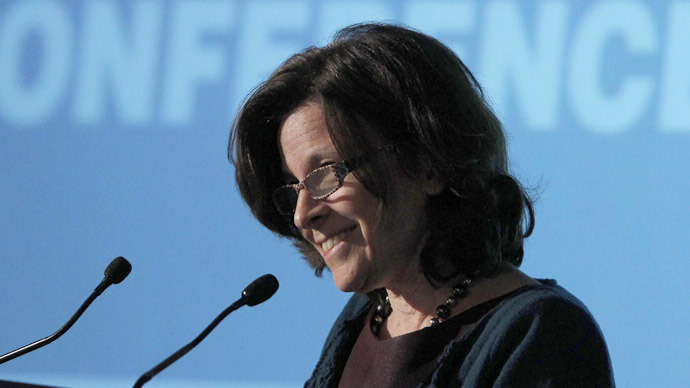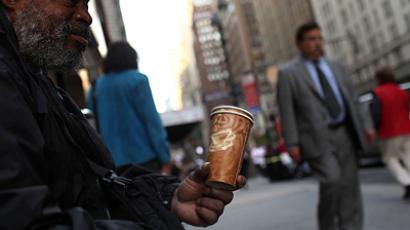Federal Reserve: rising inequality jeopardizes economic recovery

A top ranking member of the United States Federal Reserve cautioned economists this week that growing inequality within the US was worsening the odds of a quick return to the conditions of the pre-recession days.
Fed Board of Governors member Sarah Bloom Raskin was in Washington, DC on Thursday, and during an address before the Society of Government Economists and the National Economists Club she said the widening gap between the rich and poor is just one of the issues being investigated as attempts are made to rebound from the financial crisis of 2009.
“In my view, the large and increasing amount of inequality in income and wealth, which has been an ongoing development for decades, may have exacerbated the crisis and I think more research is required to determine whether it may also pose a significant headwind to the recovery from the crisis for years to come,” Raskin told the crowd. “So, while I am hopeful that pressures will ease further as home prices continue to rebound, I also believe that some of the restraints on the recovery may be quite long-lasting.”
When the Pew Research Center released their findings on inequality last month, they concluded that the wealthiest 7 percent of Americans saw their average net worth surge by 28 percent when the great recession ravaged a majority of US households. In that same span between 2009 and 2011, those on the bottom 93 percent saw their net worth drop 4 percentage points.
“It has been a very good recovery for those at the upper end of the wealth distribution,” Paul Taylor of the Pew Research Center wrote of his report, “But there has been no recovery for the lower 93, which is nearly everybody.”
And as that trend is obvious to pollsters, economists are worrying that a widening gap between sectors will reduce the likelihood of a rebound anytime soon. Before Raskin touched on inequality during this week’s address, she admitted that the recovery process in the post-recession years has been “a very weak one.”
According to Raskin, the problem stems from massive lay-offs in the wake of the recession’s start that primarily had an impact on workers of certain sectors that have been unable to find employment elsewhere. Raskin said “currents of globalization and technological change” meant that many Americans fired in 2009 have been unable to adopt for the jobs that are in demand today.
“About two-thirds of all job losses in the recession were in middle-wage occupations — such as manufacturing, skilled construction, and office administration jobs — but these occupations have accounted for less than one-fourth of the job growth during the recovery. By contrast, lower-wage occupations, such as retail sales, food service and other lower-paying service jobs, accounted for only one-fifth of job losses during the recession but more than one-half of total job gains during the recovery. As a result of these trends in job creation, which could well have been exacerbated by the severe nature of the crisis, the earnings potential for many households likely remains below what they had anticipated in the years before the recession,” she said.
“The increase in economic activity and the decline in the unemployment rate are, of course, welcome, but we still have a long way to go to reach what feels like a healthy economy. In fact, the pace of recovery has been slower than most had expected. The gap between actual output and the economy's potential remains quite large, according to estimates from the Congressional Budget Office, and the unemployment rate today remains well above levels seen prior to the recession, and well above the level that the Committee thinks can be sustained once a full recovery has been achieved,” added Raskin.
Thursday’s remarks by the Fed board member was actually the third time in as many months that she warned of what widening inequality was doing to America. During an event in New York City last month, Raskin said, “Of course, it is not part of the Federal Reserve's mandate to address inequality directly, but I want to explore these issues today because the answers may have implications for the Federal Reserve's efforts to understand the recession and conduct policy in a way that contributes to a stronger pace of recovery.”














